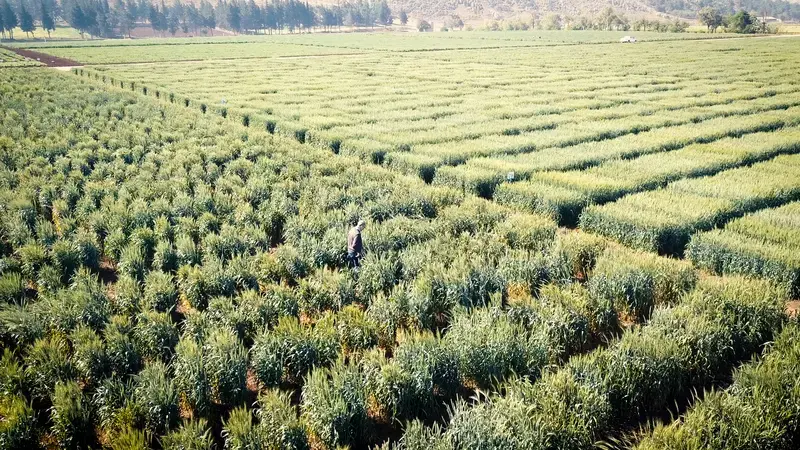
ICARDA's efforts to promote dryland forage legumes are based on genetic resources, seed production, and management. Research based on several long‐term barley‐ and wheat‐based rotation trials have demonstrated forage legumes' viability, especially vetch, in the region's improved farming system. ICARDA's forage program has also made significant progress in selecting species and varieties adapted to the West Asia and North Africa region and supplying them to national programs with adequate diversity and seeds.
ICARDA recognizes that forage legumes are vitally important to animal production in the dryland farming systems of the Mediterranean region and have great potential as an animal feed source. In addition, ICARDA is promoting the use of forage legumes as a valuable rotation crop with cereals in dry areas due to the ability of some varieties to survive harsh conditions, as well as their enhancement of soil quality. ICARDA gas shown such legumes to improve soil fertility, soil organic matter, and soil physical properties, making their development essential to agricultural sustainability in the Mediterranean region and in other dryland cereal‐growing areas of the world.
To build upon the considerable research conducted on forages, ICARDA is intensifying efforts to develop locally adapted forage cultivars, provide an economic assessment of forages in cropping systems, and promote technology transfer at the farm and community level.
